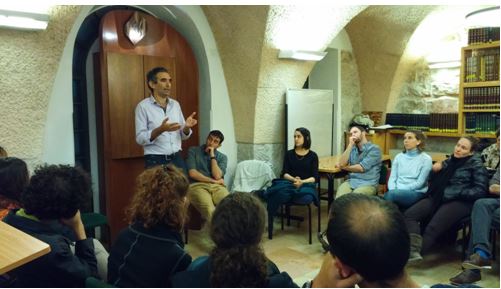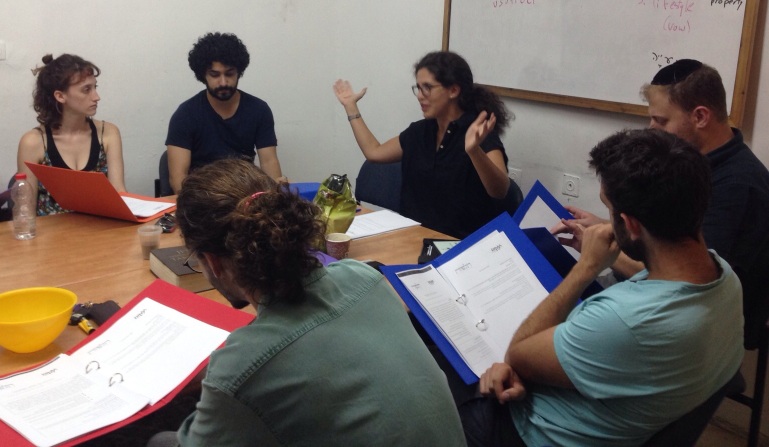Beit Midrash TAKUM – Engaging community professionals and grassroots volunteers in Israel and abroad through a nine-month, international social justice program integrating in-depth Jewish learning with activism.
TAKUM is a partnership with Yeshivat Talpiot, an egalitarian yeshiva committed to facilitating critical, open engagement with Jewish text and social crisis as a means of influencing activism. TAKUM, hosted at the Conservative Yeshiva in Jerusalem and Tel Aviv University, seeks to bring Torah study to the streets in ways that urge action on behalf of others in need. This year, the project’s third, study and public service are focused on aiding Israel’s refugees and asylum seekers, as well as victims of prostitution and human trafficking.
This spring brings new energy to Beit Midrash TAKUM with the launch of two new cohorts: one in Jerusalem for established, experienced young professionals already involved in fields of social change, and the other for young students from Tel-Aviv University.
The Jerusalem cohort of 13 Fellows from diverse religious and cultural backgrounds work as teachers, social workers and community organizers. Some have previous experience in Beit Midrash learning.
The Tel-Aviv cohort of eight Fellows from Tel-Aviv University is quite different. All come to the Beit Midrash without experience with Jewish text study. All Fellows in this cohort volunteer in three Tel- Aviv NGOs working with refugees and asylum seekers, including:
- African Refugee Development Center, a community-based NGO founded in 2004 by African asylum seekers and Israelis focused on assisting, protecting and empowering African refugees and asylum seekers in Israel
- Garden Library – Center for Education, Culture and Art, an NGO established in 2009 dedicated to promoting access to culture and education as a basic human right
- Mesila- Aid and Information Center for Migrant Workers and Refugees, founded by the Tel-Aviv-Yafo Municipality to grant social, educational and medical assistance to the city’s refugees and migrant workers.
Simultaneously, TAKUM’s first Jerusalem cohort of religiously diverse university students and recent graduates with minimal activist experience began in October 2015. Fellows in this cohort (as in the Tel- Aviv group) receive a modest stipend for their participation; undertake serious volunteer roles in lieu of tuition; and assist with refugee relief efforts and as part of ATZUM’s Task Force on Human Trafficking and Prostitution. This cohort is currently deeply involved in its volunteer work.
In March TFHT Fellows collaborated with student activist groups to organize a Hebrew University hosted public debate on prostitution in Israel society. Panelists included MK Shuli Mualem from Bayit Yehudi, a religious Zionist political party, and three speakers from NGOs dedicated to stopping prostitution. The event enabled recruitment of new Project 119 activists. (Project 119 is TFHT’s weekly campaign pairing individual MKs and Government Ministers with volunteers urging passage of Nordic Model legislation. The time commitment is minimal; the campaign’s impact is considerable.) The panel event effectively demonstrated to the TAKUM Fellows who organized the evening how they might impact public discourse.

Photo: Avi Dabush, a community organizer and activist, addresses two TAKUM cohorts at the Conservative Yeshiva in Jerusalem in March 2016.








